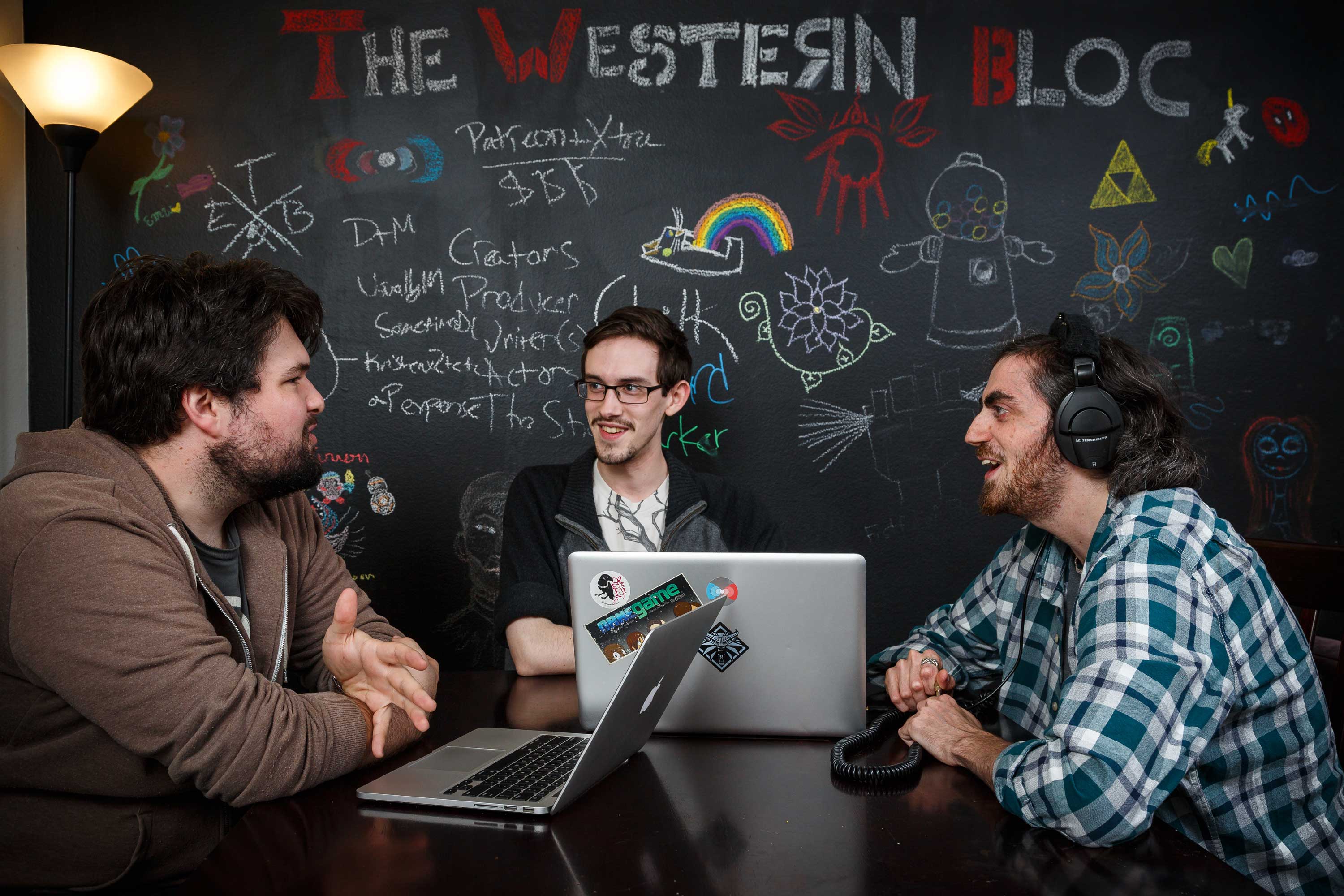ars PARADOXICASearching for Meaning in a Universe that Aggressively Lacks One
ars PARADOXICASearching for Meaning in a Universe that Aggressively Lacks One
On a campus somewhere in the United States sometime in the 21st century, particle physicist Dr. Sally Grissom is in her lab trying to invent a levitation device…
In the middle of an experiment, Grissom suddenly finds herself on a battleship in the Philadelphia Navy Yard in 1943. She has unwittingly invented time travel. The puzzled officers of the ship believe Sally must be a spy, so she’s conscripted into an underground intelligence branch of the U.S. government.
That’s how the plot unfolds in ars Paradoxica, a podcast co-written by Julian Mundy ’13 that has gained wide acclaim in the sci-fi community. The production, now in its second year, was recently cited by Popular Science magazine as one of the best science fiction podcasts in the country, and Mundy and his collaborators won four national awards from the website Audio Verse, including best writing, best engineering, best new show and best show overall.

Mundy, son of Frances Lehman Loeb Art Center Director James Mundy, majored in film at Vassar and works as a video editor for Renegade 83, a reality TV production company in Burbank, CA. He lives in Burbank with longtime friend Mischa Stanton, a co-creator of the show. Mundy says he probably spends as much time working on ars Paradoxica as he does at his day job. “We record the show in a closet full of egg crates and cushions in our apartment, but most of the actors and other writers live elsewhere – Boston, Chicago, New York City, and London,” he says.
The drama melds fictional characters such as Sally Grissom with actual historical figures. One of the principal “villains” of the show is William “Wild Bill” Donavan, who was head of the Office of Strategic Services (OSS), a precursor of the CIA, during World War II. “Donovan quickly understands that Sally is a time traveler and sees an opportunity to use her talents, so he press-gangs her into doing R&D for a time-travel spy group,” Mundy explains.
As the story moves forward after the war, it draws on events – some of them real and others imagined by ars Paradoxica writers -- triggered by nefarious politicians and government agents during the red-baiting McCarthy era of the late 1940s and early 1950s. Mundy says the show is planned for five seasons. “It’s revisionist history, and we’re playing around with the timelines, but I think everyone will be surprised by the finale,” he says.
The show is partially funded through Patreon, an online service that enables fans to pledge money for their favorite podcasts. It has about 45,000 listeners and receives about $800 a month through Patreon to cover some of the productions costs. “Obviously not all 45,000 people listen to every show, but we’re encouraged by the response we’ve received,” he says.

Mundy has written three of the 19 episodes that have aired so far and says he enjoys the collaborative aspects of the project. “I can’t take any ownership for the idea – it was the brainchild of Mischa Stanton and Daniel Manning, who wrote the first episodes while they were students at Emerson College in Boston,” Mundy says. “But now that we’re doing the show together, the creative energy is always bouncing off each other.”
Mundy says he’s grateful to have landed a full-time job just a few days after he and Mischa decided to move to California last year. He says he concentrated on film and video editing during his time as a film major at Vassar “because I figured you have a better chance of surviving in this industry if you have an actual trade.” Before moving to California, Mundy had supported himself with a series of short-term film editing jobs, a teaching job at a media workshop, and a stint as a door-to-door salesman for Andersen Windows.
When he isn’t working at his video editing job or writing for ars Paradoxica, Mundy is busy writing a new podcast that he hopes will be ready to air sometime next year. “It’s a concept I’ve been stewing about since I left Vassar, and I finally found the inspiration to start writing it,” he says.
In the meantime, he’s enjoying the acclaim he and his friends have received for ars Paradoxica. “Our goal is to be one of the smarter-written shows,” Mundy says. “We want to create characters with care, to avoid being lazy in our writing. Looking back, I can see how much we’ve all grown since we started the show.